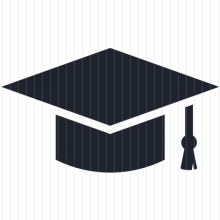Founded in 1988, an Open University (UAb) is a public higher education institution in Portugal.
By its vocation and nature, UAb uses in its teaching activities the most advanced distance education methodologies and technologies geared towards education without geographical boundaries or physical barriers, and with a special focus on the expansion of the Portuguese language and culture in space Of Lusofonia (migrant communities and Portuguese-speaking countries).
Thus, the UAb provides, anywhere in the world, higher education (bachelors, masters and doctorates) and Lifelong Learning courses. The entire pedagogical offer is integrated into the Bologna Process and taught in elearning, since 2008, the year in which the UAb has become a leading European institution in the advanced field of elearning and online learning, through the recognition of its Model Virtual Pedagogical.
In 2010, the elearning model developed and practiced by UAb was awarded the EFQUEL Award - European Foundation for Quality in Elearning and UNIQUe - The Quality Label for the use of ICT in Higher Education (Universities and Institutes). In the same year, the UAb was also qualified as the reference institution for teaching in elearning in Portugal by an international panel of independent experts.
Under the European scheme of Levels of Excellence, the European Foundation for Quality Management (EFQM) distinguished the UAb in 2011 with the 1st Level of Excellence Committed to Excellence (C2E). In 2016, UAb's commitment to quality was recognized by EFQM, which distinguished 4-star University in the 2nd Level of Excellence Recognized for Excellence (R4E).





